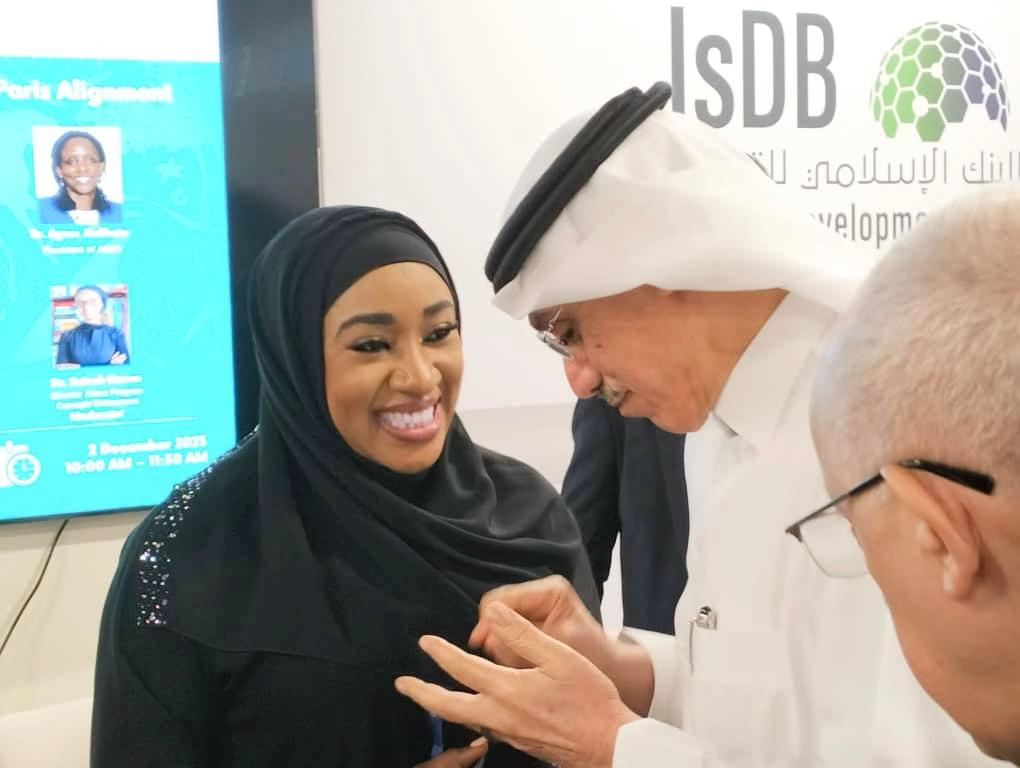
Buoyed by President Bola Tinubu’s Renewed Hope Agenda which seeks to reduce humanitarian crises and alleviate poverty in Nigeria, the Islamic Development Bank (IsDB) has pledged to help the country scale up its response to a humanitarian crisis and its drive to reduce the poverty index through the new Climate Change Adaptation Policy “fair, inclusive, and just transition conceptual framework and action plan.”
Chairman and Group Chief Executive of the Bank, Dr. Muhammad Sulaiman Al Jasser, made this known on the sidelines of a high-level panel meeting held with critical stakeholders of some developing Countries and Development Partners at the Ongoing COP 28 Climate Change Conference In Dubai, United Arab Emirate.
The Islamic Development Bank Chairman said the decision was part of efforts by the bank to align its objective with the “Paris Agreement.”
Al-Jasser said climate change has exposed countries to disasters, poverty, insecurity, and humanitarian crises:
“We must quickly intervene to protect the population through social protection and scale up of the social safety net.
“Nigeria needs the support of the Islamic Development Bank through its beautiful initiatives. The time to act is now,” he said.
“This framework which is being launched here at COP 28 signals our readiness to collaborate with all stakeholders, governments, the private sector, civil society, and other development institutions to harness the immense potential of the Paris Agreement for sustainable development.
“In Our current role as Chair of the Multilateral Development Banks (MDBs) Working Group on Climate Change, we seek to better coordinate efforts among MDBs at the country level and support the development of long-term national strategies,” he added.
He disclosed that the Islamic Development Bank Group stands ready to play its part, support member countries, and work closely with strategic partners.
Speaking, the Minister of Humanitarian Affairs and Poverty Alleviation, Dr. Betta Edu said, “It’s time for us to move from words, commitments, and policy frameworks to actual action and implementation of the climate change adaptation plan.
“The federal government of Nigeria is committed to active partnerships that will translate into solutions for millions of Nigerians.”
Edu, who singled out Nigeria due to its policy thrust on Humanitarian response and Poverty Alleviation, said “truly, Nigeria is deserving of the support of the bank given President Tinubu’s laudable programs and interventions in various sectors closely linked to climate change adaptation, especially Humanitarian and Poverty Alleviation Programs required to address issues resulting from flooding, erosions, drying up of the Lake Chad Basin among other issues that have taken away livelihoods, displaced millions and heightened insecurity and insurgence.”
The Minister said the Humanitarian and Poverty Alleviation Trust Fund was one of the administration’s many beautiful ideas to reduce the poverty index and promote prompt responses to humanitarian situations across Nigeria.
“The ‘GROW NIGERIA’ is another intervention closely linked to climate change solutions,” she said.
Also, in attendance at the high-level meeting were the UN Assistant Secretary-General & CEO of African Risk Capacity Group, Mr. Ibrahima Cheikh Diong, ILO Director for Priority Action Program on Just Transitions, Dr. Moustapha Gueye, AGRA President, Dr. Agnes Kalibata, IsDB Director Resilience & Climate Action, Syed Husain Quadri, Manager Climate Change and Environment, Dr. Daouda Ndiaye, while the sideline panel was moderated by Dr. Zeinab Usman, Director of the Africa Program Carnegie Endowment.
After the Event, the Honorable Minister of Humanitarian Affairs and Poverty Alleviation, held a meeting with the President, as well as a long session with the technical team of IsDB from the Head Office in Saudi Arabia to flesh out details of the compact agreement to be signed between Government and the Bank, as well as identify new projects and programs that the country can benefit from.


